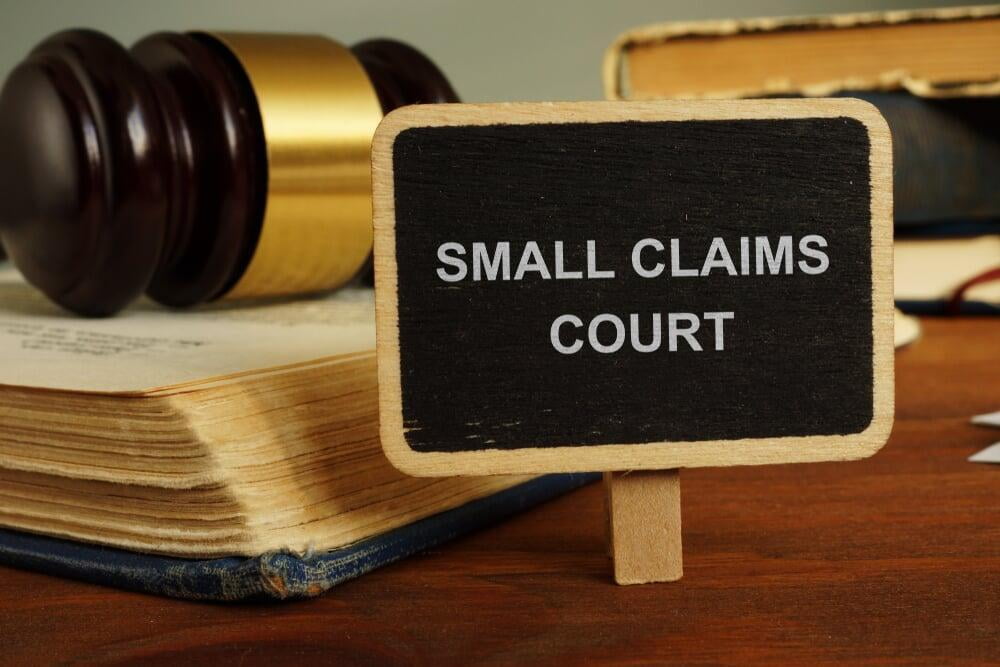Small Claims Court 44th Justice Of Peace St. Bernard Parish
Louisiana Civil Code Of Procedures
The following information is meant to provide general information and does not constitute legal advice or opinion. Parties should seek legal counsel before seeking court redress.

The Small Claims Division is a part of the St. Bernard Parish Justice of Peace Court, established pursuant to Louisiana Statutes 13:5201-5212. You may sue to resolve minor civil disputes or try to recover claims of up to $5,000.00, plus interest, court cost and attorney fees. A claim, generally speaking, asserts a legal right you may have.
You may use JPC to sue someone who lives in St. Bernard Parish. You may also sue in JPC. if you were personally injured or your property was damaged by actions of another party within the limits of St. Bernard Parish, regardless where the party causing your injury may live. Otherwise, the Court’s authority to handle cases affecting defendants who do not reside within the St. Bernard Parish limits depends on numerous factors that warrant professional legal advice.
You must be EIGHTEEN YEARS OF AGE or an emancipated minor to file a case in JPC, but minors and incompetents may sue through a parent or guardian. If you are filing suit on behalf of a business, a duly authorized officer, shareholder, agent, representative, or employee of a corporation or unincorporated association may file suit on behalf of the organization if the dispute involves an open account or negotiable instrument. Otherwise, a corporation must be represented in Court by a licensed attorney (La. R.S. 37:212C).
SMALL CLAIMS SUPPORT GLOSSARY
- agent a person or party acting legally on behalf of another person, party, or corporation.
- arbitrator a licensed attorney who resolves disputes between parties.
- court costs the amount paid into a suit by a party for filing and/or service fees.
- date of judicial demand is the original filing date of a suit.
- defendant the party or person who is being sued.
- domiciliary service when the properly addressed, certified mail return receipt reply form is signed at the residence by someone other than the defendant, then service shall be considered as domiciliary service.
- due & diligent service NO SERVICE. Service not made after a diligent search and inquiry.
- garnishee defendant’s employer or someone who has money or property in his possession belonging to defendant, such as a bank where defendant has funds.
- garnishment a judicial proceeding in which a creditor (or potential creditor) asks the court to order a third party who is indebted to the debtor to turn over to the creditor any of the debtor’s property (such as wages or bank accounts) held by the third party. A plaintiff initiates a garnishment action as a means of either prejudgment seizure or post judgment collection.
- incorporated formed into a legal corporation under applicable state law.
- judgment debtor rule a rule to show cause against a person whom a money judgment has been entered but not yet satisfied.
- judicial interest legal interest, fixed by law, on the principal amount owed in a judgment. This type of interest is calculated from the original date of filing.
- jurisdiction is the legal power and authority of a court to hear and determine an action and to grant parties the relief to which they may be entitled.
- mediator a neutral, impartial third-person who assists disputing parties resolve disputes
- personal service when the properly addressed, certified mail return receipt reply form is signed by the addressee/defendant, then service shall be considered as personal service.
- plaintiff the party who is filing suit against another party.
- seizure the act or an instance of taking possession of a person or property by legal right or process. To forcibly take possession (of a person or property).
- service of process the act of presenting a copy of a legal document such as a Statement of Claim and Citation to a party by a duly authorized court officer, thereby putting the receiving party on legal notice of the action.
- suit number the number assigned to your lawsuit at the time of its filing by the Clerk of Court. (Any correspondence or other inquiry about your case should contain this number.)
- tendered when a properly addressed, certified mail return receipt reply form is returned and marked “refused” or “unclaimed” by the addressee, then service of process is regarded as tendered and shall be considered as domiciliary service.
- venue as opposed to jurisdiction, is merely the parish or city (physical location) in which an action or proceeding may be properly brought and tried. It relates to the geographical location where a case may be tried.
You Must Identify the Proper Party to Sue.
You Must Identify the Proper Party to Sue:
You must determine the proper legal name and complete physical address of the party that you wish to sue. This party is called the “DEFENDANT.” You will be the “PLAINTIFF.” It is the responsibility of the plaintiff to have the correct name and complete physical address of the person being sued.
It is extremely important that you sue the correct person or company.Before you file your claim, make sure you know who you should sue, so that your judgment will be enforceable if you prevail.
If you initially sue the incorrect party and obtain an Award and subsequent Judgment against that party, the Judgment may not be collectible. Please review the following instructions.
If the business is incorporated, you should request the name and address of the REGISTERED AGENT for the corporation.The agent is the individual who will receive “service” or notice of the suit.You should also find out the address of the REGISTERED OFFICE of the corporation, because this address is the corporation’s “residence.”
If the business is not incorporated, you must find the NAME AND ADDRESS OF THE OWNER of the business, not the name of the business itself.
If you are suing someone as a result of an automobile accident and do not know the owner of the vehicle causing the injury, the license number is helpful for determining the name and address of the owner.You can write or go to Motor Vehicles Registration, Saint Bernard Parish, LA and request this information.A fee will be assessed.
You may wish to file in the suit record copies of written evidence that would help support your claim in Court, such as: Contracts Paid Bill Letters/Written Records
Leases Canceled Checks Repair Estimates (2 or more)
Bring to court any document or other evidence that you believe will be helpful in proving your case at the time of your trial.If you wish to keep a copy of any documents you use as evidence, you must make your copies prior to coming to Court.
You Must Complete the Appropriate Form(s):
You must first complete the court-approved form entitled “Statement of Claim and Citation.” This form is required in all Small Claim cases and is specific to Justice of The Peace Court. Any other

Do I have everything in order?
PLAINTIFF:
1.Does claim fall within jurisdiction of Justice of the Peace Court?
2.Are you suing the proper party defendant?
3.Do you have the defendant’s proper legal name(s) and address (es)?
4.Did you fill out a complete statement of why you are suing?Include amount of money you seek to recover, date, and locations related to your claim.
5.Did you include copies of written evidence with your Statement of Claim and Citation?
6.Did you provide your complete name, address, phone number and signature?
7.Did you familiarize yourself with this guide?
8.Should I speak with an attorney?
DEFENDANT:
1.Do you want to contact an attorney?
2.You must file this request within ten (10) days from the date you were served.
3.Do you wish to contest claim?You must file a written Answer within ten (10) days from the date you were served, or any time prior to a default judgment being signed.
In your Answer, consider:
Is this Court the proper court?
Has the debt been discharged in bankruptcy?
Was there negligence on part of the plaintiff?
Has there been a compromise or payment?
Was there fraud, illegality, error, or mistake present?
Is the plaintiff seeking excessive damages?
4.Do you wish to file a “counterclaim” against the plaintiff?
5.Should I speak with an attorney?
